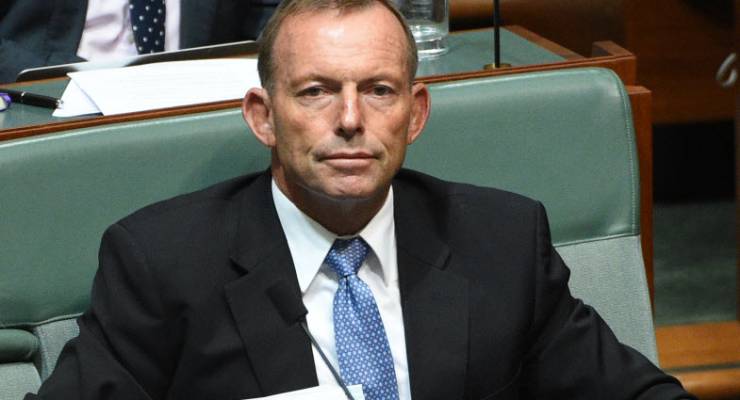
Former prime minister Tony Abbott’s series of essays in Quadrant on his prematurely ended prime ministership reveal yet another definition of “no sniping and no undermining”. Making sure that he is not forgotten by his colleagues and the electorate, Abbott acknowledges some mistakes, like not doing enough long-form media interviews, before turning all the blame onto the “people” who booted him out:
“Looking back, the Abbott government’s biggest problem was people’s reluctance to accept that short-term pain might be needed for long-term gain.”
“At the very beginning of the Abbott government’s life, I made a series of decisions that were reasonable, even self-evident in principle, but which created much resentment in the party room. I stopped the employment of immediate family members in MPs’ own offices because of the inevitable perceptions of favouritism; I ended first-class overseas travel out of respect for taxpayers; and I restricted family travel within Australia and spouse travel overseas because family very rarely accompanied business trips in the private sector. These were perks that many MPs had understandably enjoyed and that previous prime ministers had tolerated. In some cases, having a spouse in the office, paid or unpaid, may have helped MPs’ work. With the benefit of hindsight, at the very least, I should have handled this more sensitively.”
“In retrospect, the small things that annoyed people tended to outweigh the big things that pleased them. There were always people willing the Abbott government to fail but I made some unnecessary enemies and left too many friends feeling under-appreciated. The Australian newspaper, for instance, welcomed the China free-trade deal but on its front page criticised the government for its inability to market its own success.”
While the piece has been labelled a “mea culpa”, we think it’s more of a “suae culpae”.







Tony, you and your shadow pissed off most liberal voters. End of story, no coming back.
Um, is there more to this story?
There’s two sentences, a couple of paragraph quotes, and one final sentence?
Assuming there was more, your beta site is still um, quite beta…
Bull***t! Abbot on his defeat promised no retribution. His simple-minded slogans, short attention span, and grudges have done the Liberal brand irreparable harm. Turnball was an honest broker who tried his best, but could not match the vitriol of News Ltd, 2GB and the fart bubble of Canberra. Thank you, Mr. Turnbull, you were a moderate amongst jealous rougues.